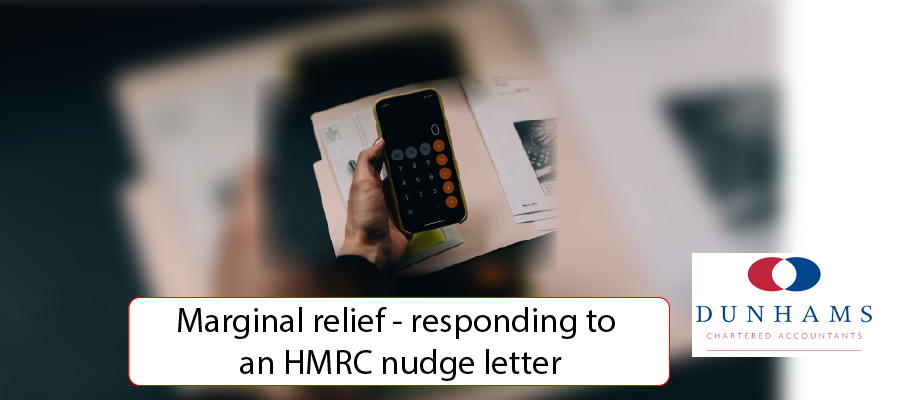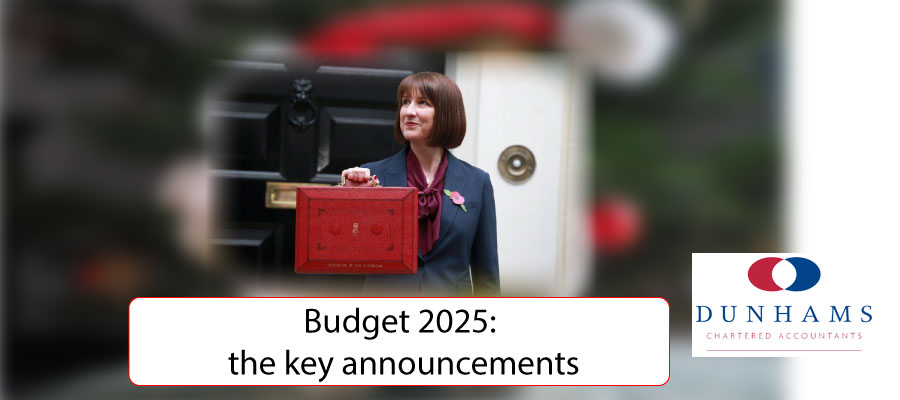Government announces significant climbdown on IHT reforms

Government announces significant climbdown on IHT reforms The introduction of a £1 million cap on 100% business and agricultural property relief from April 2026 has been criticised particularly heavily by the farming industry. The government has announced a significant watering down of the measure. What’s happening? The 2024 Autumn Budget announced the end of unlimited 100% agricultural and business property relief (APR/BPR) from April 2026. Get the Accounting Knowledge you Need The plan was to introduce a combined cap of £1m, with any qualifying assets in excess of this to benefit from 50% relief. The announcement was met with outrage from the agricultural community. Tractor protests in Central London have been ongoing periodically ever since. One of the criticisms was that the allowance would not be transferrable between spouses/civil partners if it was unused. The Autumn 2025 Budget back peddled on this and confirmed a transferrable allowance, along the same lines as the existing nil rate bands. However, less than a month later the government has announced a significantly more generous amendment: instead of a £1m allowance, each individual will be entitled to a £2.5m transferrable allowance. Accompanying the published details was the statement from the Environment Secretary that “We have listened closely to farmers across the country and we are making changes today to protect more ordinary family farms.” This seems rather odd, as the government had 13 months from the original announcement to “listen closely” to farmers (who weren’t exactly being inconspicuous) ahead of the November Budget, and you have to wonder what new feedback became available in the four subsequent weeks. Still, perhaps it’s best not to look a (Christmas) gift horse in the mouth! back to the menu top If you would like any assistance with any of these points. Please Call Us on 0161 872 8671 Get in Touch Want a financial consultation with no obligation? Call Dunhams Chartered Accountants now on 0161 872 8671 Or email paul.o’brien@dunhams.co.uk or andrew.edwards@dunhams.co.uk
Planning ahead for pension salary sacrifice changes

Planning ahead for pension salary sacrifice changes From 6 April 2029, both employers and employees will be required to pay Class 1 NI on pension contributions in excess of £2,000 made through a salary sacrifice arrangement. What can you do about it? Salary sacrifice Under a salary sacrifice arrangement, your employee gives up some of their salary in return for a benefit. At the very least, this results in employees’ NI savings, and where the benefit is exempt will also deliver income tax and employers’ NI savings. The rules on salary sacrifice arrangements were tightened considerably from April 2017 meaning that now only a handful of benefits can be provided tax efficiently through a salary sacrifice arrangement, which includes pension contributions. Boost pension contributions The use of salary sacrifice arrangements to swap cash salary for employer pension contributions increased in popularity following the hike in employers’ NI to 15% from 6 April 2025. Find the Accounting and Planning Services You Need Employee pension contributions attract tax relief (subject to the earnings cap and the employee’s available annual allowance), but they do not benefit from NI relief. However, there is no NI to pay on employer contributions to a pension scheme. Therefore, both the employer and the employee can benefit by entering into a salary sacrifice arrangement whereby the employee gives up cash pay in return for an employer pension contribution. Example. An employee pays £200 a month into a pension scheme (£2,400 per year). The employee will benefit from tax relief on their contributions, but there is no NI relief. Depending whether the employee pays NI at 8% or 2%, either £16 or £4 NI is payable on the salary paid into their pension. The employer will pay employers’ NI of £30. If, instead, the employer and employee enter into a salary sacrifice arrangement whereby the employee sacrifices £2,400 of their annual salary in return for an employer pension contribution, the employee’s cash pay will drop by £200 a month, saving them £16/£4 in NI. The employer will save £30 a month (£360 a year). The contribution to the employee’s pension is unchanged but both the employee and employer save NI. The changes don’t come in until 2029 so you can use a salary sacrifice arrangement for pension contributions without limit until April 2029. The greater the contribution, the greater the NI savings. Changes in 2029 From 6 April 2029, only the first £2,000 pension contributions (per employee, per year) made through a salary sacrifice scheme will be exempt from NI. This will limit the employee’s savings to £160 for basic rate taxpayers or £40 per year for higher rate taxpayers. Your savings will be restricted to £300 per year, per employee. Assuming you already have employees contributing more than £2,000 per year under salary sacrifice, your business will have a hefty NI bill if you don’t take action. Mitigating the effects Ensure unlimited salary sacrifice arrangements only run to 5 April 2029, and encourage employees to increase the amount sacrificed in 2026/27 and 2027/28. New arrangements should be put in place from 6 April 2029, capping the contributions at £2,000 per annum. You can still save NI at 15% if you unilaterally decide to increase employer pension contributions instead of giving employees a pay rise from 6 April 2029. back to the menu top If you would like any assistance with any of these points. Please Call Us on 0161 872 8671 Get in Touch Want a financial consultation with no obligation? Call Dunhams Chartered Accountants now on 0161 872 8671 Or email paul.o’brien@dunhams.co.uk or andrew.edwards@dunhams.co.uk
Marginal relief – responding to an HMRC nudge letter

Marginal relief – responding to an HMRC nudge letter HMRC is running a campaign to clamp down on incorrect claims for corporation tax marginal relief (MR). In what circumstances might you be challenged by HMRC and how should you respond? Marginal relief When the main rate of corporation tax (CT) increased in April 2023 marginal relief (MR) was introduced to soften the blow. While companies with annual profits of £50,000 or less pay CT at the small profit rate of 19%, if profits are greater, even by £1, all profit is taxed at the 25% main rate. To prevent an inequitable tax bill MR tapers the impact of the main rate of CT where profits are between £50,000 and £250,000. Get more information on Business Tax Services Anti-avoidance Businesses are prevented from obtaining multiple MRs where they operate through more than one company and the companies are associated. Companies that are associated must share a single MR. The rules that determine when two or more companies are associated are especially tricky. Broadly, companies within the same corporate group, are controlled by the same individuals or commercially dependent on each other are associated (see Further information ). Some types of company that appear to be associated with others can be ignored when working out MR, e.g. passive companies (see Further information ). HMRC’s MR campaign According to HMRC many companies have been overclaiming MR, in most cases probably because they have not fully understood the associated company rules. As a result, HMRC started a campaign to claw back excess MR claimed. Its attack starts with one of two different letters. What happens next depends on which type of letter you receive. HMRC letters While the text in each letter is similar, the content of each differs slightly. One indicates that HMRC might start a compliance check or take punitive action if you don’t respond while the other is less aggressive. The action you should take is the same for both letters, i.e. you should check the CT returns for the company’s accounting period that includes 1 April 2023 and subsequent periods. The letters also list the companies which HMRC thinks are associated. If the MR for the company the letter is sent to is wrong then any MR claimed for the other companies that HMRC lists is probably also wrong, so also check the CT returns for them. Remember that HMRC is far from infallible. We’ve seen a letter where its list of allegedly associated companies includes at least one that’s passive and so shouldn’t figure in the MR calculation. Responding to HMRC Despite the threats of possible action if you don’t reply to HMRC’s letter within 30 days, you’re under no obligation to do so. However, we strongly advise that you do. If you need more than 30 days for this contact HMRC as soon as possible and ask for an extension. If after checking you still believe that your calculation of MR is correct, ask HMRC to explain its reasoning. That way you can dispel any misapprehensions it has and prevent the matter from escalating or being raised in a later year. back to the menu top If you would like any assistance with any of these points. Please Call Us on 0161 872 8671 Get in Touch Want a financial consultation with no obligation? Call Dunhams Chartered Accountants now on 0161 872 8671 Or email paul.o’brien@dunhams.co.uk or andrew.edwards@dunhams.co.uk
MONTHLY FOCUS: UNDERSTANDING FURTHER CONCEPTS WITH IR35

MONTHLY FOCUS: UNDERSTANDING FURTHER CONCEPTS WITH IR35 A focus taking a deeper look at the practical aspects of IR35. This month, we look at dealing with HMRC, the tax and NI regulations, and the IR35 calculations. Dealing with HMRC Can IR35 clearance be given by HMRC? HMRC expects workers, intermediaries and clients potentially affected by IR35 to use its online “check employment status for tax” (CEST) tool to determine if a contract is caught or not. While this tool has been significantly improved there might be occasions when individuals need to consult HMRC more directly. If you would like to Speak to any of our Expert Accounting and Financial Teams Please Call Us On 0161 872 8671 Or see Our Accounting Services Pages for more Information It has a specialist unit dealing with IR35 enquiries. The staff there are professional and helpful. They can be contacted in writing, by phone or e-mail: HM Revenue and Customs IR35 Customer Service Unit, S0733, Newcastle Upon Tyne, NE98 1ZZ United Kingdom 0300 123 2326 email: ir35@hmrc.gov.uk Where HMRC is reluctant to express an opinion regarding IR35 status, the issue can be forced by asking it to make a formal decision under the Social Security Contributions (Transfer of Functions, Etc.) Act 1999. What’s HMRC approach to IR35? IR35 is a big issue for HMRC, in fact it devotes an entire manual to the question of employment status. It can be helpful and is a great deal more coherent than it might at first sight appear, and so if an engagement is faced with a challenge from HMRC it’s worth looking at this in some detail (see here). However, ultimately there is no substitute for reading the judgments made by the various courts. It is these and the legislation and not HMRC’s views that determine employment status and IR35 matters. Court judgments can be complex, but they can be persuasive in a dispute of status with HMRC. Quoting the appropriate case and the judge’s comments can stop a wayward tax inspector in their tracks. How likely is an IR35 investigation? HMRC’s attempts to enforce IR35 since its introduction have not been very successful. Despite having specialist units, HMRC is trying to police a large number of personal service companies and investigating them is very time consuming. There are two further problems that stack the odds against HMRC: It will often find both the worker and the client ganging up on it to agree that IR35 does not apply, or the client simply does not want to get involved. There is frequently no money left in the company anyway, so even if HMRC wins a case it will fail to collect much if anything in tax and NI. In essence, HMRC chooses its IR35 battles carefully and is only likely to take on a case where the circumstances suggest a win. Therefore, the more careful the individual is about the way they provide services so as not to flag them as a potential employee, e.g. working set days and hours and generally avoiding being integrated into a client’s organisation, the better. Do the off-payroll rules affect the likelihood of an enquiry? HMRC has said that it won’t use the new rules to open IR35 enquiries into earlier years. In a statement about IR35 and off-payroll working at the end of October 2019 HMRC set out its stall regarding managing and enforcing the rules after April 2021. While there’s no change to the principles which determine if IR35 applies, HMRC says it has “…taken the decision that it will only use information resulting from these changes to open a new enquiry into earlier years if there is reason to suspect fraud or criminal behaviour”. In practice this means the amnesty only applies if the information which could lead HMRC to start an enquiry into earlier years comes out of “…information resulting from these changes…”. For example, if an individual is working under a contract for which they’ve decided IR35 doesn’t apply, but from April 2021 the business they were working for decided it does, HMRC will not investigate the decision unless it has evidence that the individual deliberately acted contrary to the law, e.g. they falsified documents or facts to support the view that IR35 didn’t apply. Where IR35 could apply to work, that is, an individual personally provides services to a client but invoice them through an intermediary (company, partnership, agency or another person), they should keep a record of how they arrived at the view that it didn’t apply. This can include results produced by HMRC’s Check Employment Status for Tax (CEST) tool. What sort of evidence is important in an IR35 enquiry? It goes without saying that HMRC will look at the contract, but it will also ask questions not just of the individuals, but other parties that might be involved. An interesting article was published in February 2008 by a former HMRC inspector who had been involved in some IR35 cases that had gone to tribunal. He analysed four – two won and two lost by HMRC – and concluded that a great deal revolved around the credibility of the witnesses. In particular, in the two cases that HMRC won the judges had been impressed by the testimony of the end client, whereas in the two that HMRC had lost, they had not. Individuals should Counteract this by contacting their client, preferably before HMRC can get to them, speaking to the people who actually know how the contract functions. In the two cases that HMRC lost their witnesses were simply too far from the action. A tribunal is more likely to pay attention to a line manager than an HR person. If control is a point of issue in an HMRC IR35 enquiry, it is worth comparing and highlighting differences between the worker and normal employees of the client. How should an HMRC compliance check be handled? In many ways an IR35 compliance check is like any other tax compliance check. However, like all status enquiries it is
Budget 2025: the key announcements

Budget 2025: the key announcements The Chancellor announced many changes to the tax system, with some coming into effect immediately and others in several years. What are the headline changes? In order to meet her fiscal rules and plug the hole in public finances, without technically breaking manifesto pledges, the Chancellor has introduced a raft of changes to the tax system. There are so many changes, that you’re bound to be affected. First the bad news. The income tax rates that apply to property, savings, and dividend income are going up by 2% across all bands (except the additional dividend rate). Dividends will be affected from April 2026, with the hike in property and savings tax rates coming a year later. The cash ISA allowance will be cut to £12,000 as rumoured, but the full £20,000 will still be available by ringfencing £8,000 for stocks and shares, If you would like assistance with this Autumn Budget 2025 Anouncements or any other Accounting Services you can find them here. Or Call Us On: 0161 872 8671 Pensions were thankfully largely left alone. However, the maximum amount that can escape NI charges via salary sacrifice is to be capped at £2,000 from 2029. Drivers of electric vehicles and hybrids are to be slapped with a “per-mile” levy: 3p for wholly-electric vehicles and 1.5p for hybrids. While the Chancellor did not introduce a wealth tax, a council tax surcharge will apply to properties worth more than £2 million. The charge will range from £2,500 to £7,500 and will be payable alongside the existing council tax. However, there was one small bit of good news, as it was confirmed that the £1 million allowance for 100% business and agricultural property relief will be transferrable after all. This means any unused allowance on the death of the first spouse (or civil partner) can be claimed in the estate of the second in a similar way as the nil rate bands. Those are the highlights, but as ever there is much more that didn’t make it into the speech. We’ve summarised all of the main announcements below. Get in Touch Want a financial consultation with no obligation? Call Dunhams Chartered Accountants now on 0161 872 8671 Or email paul.o’brien@dunhams.co.uk or andrew.edwards@dunhams.co.uk Stealth taxes It will come as no surprise that the majority of thresholds will be frozen for a further three years than planned, to 6 April 2031. This includes personal income tax and equivalent national insurance thresholds, the secondary threshold for employer NI contributions. The inheritance tax nil-rate bands are already set at current levels until April 2030 and will stay frozen at these levels for a further year until April 2031. The forthcoming combined allowance for the 100% rate of agricultural property relief and business property relief will also be fixed at £1 million for a further year until 5 April 2031. Unusually, the threshold at which student loans under Plan 2 are repaid will be frozen for three years from 6 April 2027. Capital allowances The main rate writing-down allowance will be reduced from 18% to 14% from April 2026 and a new 40% first-year allowance will be introduced from 1 January 2026 Dividends In a blow to owner-managers, dividend tax rates for basic and higher rate taxpayers will increase by 2% from 6 April 2026. If you’re sitting on surplus profits now is the time to consider declaring higher dividends to take advantage of the current rates. The ordinary rate will rise from 8.75% to 10.75%, and the upper rate from 33.75% to 35.75%. The additional rate will remain unchanged at 39.35%. Property income and savings income Savers and landlords were not spared from the tax increases, but they do have a longer grace period. Tax on savings income will increase by 2% points across all bands. The basic rate will rise from 20% to 22%, the higher rate from 40% to 42%, and the additional rate from 45% to 47% from April 2027. The government is creating separate tax rates for property income. These separate rates mean property income will have its own individual tax rates (as already occurs for the taxation of savings and dividend income). From April 2027, the property basic rate will be 22%, the property higher rate will be 42% and the property additional rate will be 47%. Finance cost relief will be provided at the separate property basic rate (22%). The amount under 65’s can save into a cash ISA will also be capped at £12,000 from April 2027, whilst the overall ISA allowance will remain at £20,000. This means you will need to invest in stocks and shares to get the benefit of the full ISA allowance. Inheritance tax Finally, something for the farmers. In respect of agricultural property relief and business property relief, any unused allowance for the 100% rate of relief to be transferable between spouses and civil partners from 6 April 2026. The unused allowance can be transferred even if one spouse died before 6 April 2026, which is a significant change to the previously announced policy. Employees From 6 April 2026 the deduction from income tax for non-reimbursed home working expenses will be removed. Employers can still reimburse employees for these costs where eligible without deducting Income Tax and NI. From 6 April 2026 the income tax and NI exemption for employer-provided benefits will be extended to cover reimbursements for eye tests, home working equipment, and flu vaccinations. The value of salary sacrificed pension contributions that can receive employee and employer NICs relief will be capped at £2,000 per year. An unpopular policy but at least it won’t come in until 6 April 2029. At Autumn Budget 2024, the government announced it would bring employee car ownership schemes into scope of the Benefit in Kind rules from 6 April 2026. Implementation will now be delayed to 6 April 2030, with transitional arrangements until April 2031. Cars The Expensive Car Supplement threshold for zero emission vehicles will increase
Autumn Budget 2025 (Updated).

Chancellor of the Exchequer Rachel Reeves set out tax-raising measures worth up to £26 billion in the Autumn Budget on 26 November 2025.
The increases will be achieved through a range of measures, including extending the freeze on Income Tax thresholds for a further three years.
Special payroll deadline for Christmas

Special payroll deadline for Christmas If you pay staff early in December because of Christmas it’s important that you enter the information on your payroll submission correctly. When you need that extra help with Payroll, Ask Dunhams Accountants What do you need to know to get this right? PAYE and NI reporting As an employer you’ll be aware of the deadline that applies for reporting payroll information to HMRC. In recent years HMRC has relaxed this where salaries are paid to employees earlier than their usual pay date over the Christmas period. HMRC has confirmed the concession will apply for the 2025 festive period and that it is now a “permanent easement”. What do you need to know to get this right? PAYE and NI reporting As an employer you’ll be aware of the deadline that applies for reporting payroll information to HMRC. In recent years HMRC has relaxed this where salaries are paid to employees earlier than their usual pay date over the Christmas period. HMRC has confirmed the concession will apply for the 2025 festive period and that it is now a “permanent easement”. Enter the right date If you pay your employees earlier than usual you should nevertheless show the normal payment date on your full payment submission (FPS). This isn’t just an administrative convenience for whoever operates your payroll, it’s important for any of your employees who claim universal credit (UC). Entering the actual rather than the normal date they are paid on the FPS can adversely affect their entitlement to the UC. Example. You pay your employees on 19 December 2025 whereas you normally pay them on the last working day of the month, in this example that would be 31 December. On your FPS you should show the payment date as 31 December and submit the FPS to HMRC at any time on or before that date. back to the menu top If you would like any assistance with any of these points. Please Call Us on 0161 872 8671 Get in Touch Want a financial consultation with no obligation? Call Dunhams Chartered Accountants now on 0161 872 8671 Or email paul.o’brien@dunhams.co.uk or andrew.edwards@dunhams.co.uk
How much VAT should you charge on festive goods?

How much VAT should you charge on festive goods? Your business makes and sells goods that are specifically designed for the Christmas trading period and you are preparing for the busy season. What are the VAT issues to consider so that you declare the correct amount of VAT on your returns? Find the Help you need with our VAT Services Mixed supplies Suppose that your business sells a bundle of goods as part of a Christmas package, and some of the goods are either zero-rated or subject to 5% VAT. For example, you might sell a hamper that consists of many food and drink items; some of them will be zero-rated, such as grocery items and cakes, but many will be subject to 20% VAT, e.g. wine, chocolates, soft drinks. In such cases, you should apportion output tax on your selling prices to reflect the different rates, and there are two main methods: Individual selling prices. If your business sells all items on a standalone basis, you can apportion your output tax based on these individual prices. Cost basis. Alternatively, you can use a cost-based method, calculating output tax based on the price you paid for the goods. Either method is acceptable, as is any other method, as long as it gives a fair and reasonable result in terms of the output tax payable on each sale. HMRC does not have the power to prescribe a specific method. If an officer thinks you have underpaid VAT, they have the power to issue a “best judgement” assessment. It is therefore important to stand back and check that your calculations are fair and logical to avoid a potential problem. Don’t forget the packaging Many festive goods include packaging which has a value to your customers in its own right. You must include the value in your apportionment calculations in the following circumstances: the packaging is clearly designed to be retained by your customer for future use it is “more than is required” to serve the goods in question; or the packaging has a secondary use which will benefit the customer in the longer term, such as cups or glasses. Example. Grocer Gail sells a festive product which consists of luxury biscuits packaged in an engraved ceramic container. This is a mixed supply of zero-rated biscuits and standard-rated packaging because the container has a clear value and future use to her customers. HMRC’s published guidance accepts that fancy jars and containers are accepted as normal packaging in most cases, unless it is clear that they are intended to be kept for future use. However, Kilner jars are standard-rated because they are heavy duty jars with wired lids that are used for preserving food. Business splitting? Consider a business that intends to buy and sell Christmas trees during the festive period as a new venture; they are currently registered for VAT and trade as a restaurant. There is scope to create a new legal entity for this activity so that sales can be made without charging VAT, i.e. the total sales of the new entity will be less than the compulsory registration limit. HMRC has the power to prevent business splitting if two businesses are closely connected, so it is important that the owner keeps the new activity completely separate to the restaurant, i.e. separate bank accounts, supplier accounts, record keeping etc. back to the menu top If you would like any assistance with any of these points. Please Call Us on 0161 872 8671 Get in Touch Want a financial consultation with no obligation? Call Dunhams Chartered Accountants now on 0161 872 8671 Or email paul.o’brien@dunhams.co.uk or andrew.edwards@dunhams.co.uk
Multiple tax-free perks for directors

With Christmas in mind a fellow director has suggested your company uses the trivial benefits in kind exemption to provide £300 of tax and NI-free gifts to each director.
Welsh government plans to tweak relief for buyers

Welsh government plans to tweak relief for buyers The draft Welsh Budget 2026/27 confirmed there would be no changes in the rates of land transaction tax. However, it did reveal some related changes are being planned. What’s the full story? Land transaction tax (LTT) is the devolved equivalent of stamp duty land tax in Wales. It operates in a broadly similar way, but the Welsh Government has the power to set the rates and bands. The draft Budget document confirms that there is no intention to change the rates and bands for residential and non-residential property. However, there will be changes to other parts of LTT. Get the extra help you Need Firstly, a new “equalisation” rule will be introduced to the multiple dwellings relief rules. It appears this will provide for an adjustment where properties subject to a claim are chargeable at both the main and higher rates. More detail is expected next month. There will also be an increase in the minimum tax rule rate from 1% to 3%. This rule sets a floor so that the amount of tax collected cannot be less than the specified percentage. Finally, an additional refund rule will apply to higher rate transactions where a landlord leases the property to a local authority in Wales via the Leasing Scheme Wales. This will allow the buyer to obtain a refund of the additional charge in a similar way to someone replacing their main residence. It is expected that, if approved, the changes will apply from April 2026. back to the menu top If you would like any assistance with any of these points. Please Call Us on 0161 872 8671 Get in Touch Want a financial consultation with no obligation? Call Dunhams Chartered Accountants now on 0161 872 8671 Or email paul.o’brien@dunhams.co.uk or andrew.edwards@dunhams.co.uk
